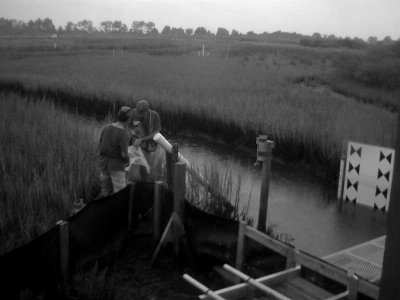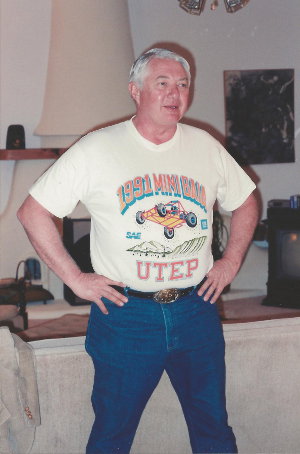Day 786 of 1000
This is the fourth in a series of posts about how a mid-career Masters degree changed my life. I admire people who do an after work and weekends Masters degree so they can pay the rent and support the family, but I did not do it that way. I bailed out of my job and dived in full time after having spent ten years in the workforce. The introductory post and index to all the other posts in the series is here.
[Previous post in series]
[Next post in series]
After ten years in industry, there were lots of good reasons for me to return to college at the University of Texas at El Paso (UTEP) for a Masters Degree. Primarily, there was a professor there who wanted me to come for a specific reason. He was not just willing to have me come. There was a need for someone like me. That was huge. I had something to offer the Industrial Engineering program at UTEP because of my ten years of experience that other students who moved directly from their Bachelors degree did not. I was able to talk to people in the industrial sector around Texas and New Mexico as well as the Maquiladora sector in Ciudad Juarez, and Chihuahua in Mexico. Those ten years experience that to speak with the industrial base in ways that “fresh-outs” could not.
It turns out that our program was further reaching than even the industrial sector around El Paso. We ended up providing services and/or installing equipment in Israel, Singapore, and Monterrey, Mexico. Those services brought money and research opportunities to the University. The experience I gained representing UTEP in industry was, in some ways, more valuable than the classes I took. The bigger point is that anyone with ten years experience in the private sector, if they were working hard and paying attention, will have something significant to offer a University that will make the transition back to college much more palatable.
While UTEP is not one of the flagship universities of Texas like Texas A&M or University of Texas at Austin, it is a great regional university. It had exactly what I needed and it was not only willing to accept me as a student, but had a unique way to use my skills. When I first got there, I wondered whether I had made a big mistake, but the longer I stayed, the more I liked it. It was a super match for me and we actually were successful enough in our work that, when I finished my Masters degree, I was invited to Texas A&M to continue on to a PhD. I never availed myself of that opportunity, but UTEP allowed me to transition from a mediocre (in terms of grades) Bachelors degree to a top tier University in one step.
The bigger point is that finding a slot like this might take some serious investigation and a move to what might at first seem to be an odd place, but it is worth it to find a school that will not only accept you as a student, but has a professor with a desire for someone with your unique skills. The professor with a desire for your unique skills and a willingness to go to bat for you makes all the difference in the world both with respect to acceptance into a program and life as a student once you get there.

 With the help of his wife, he decided to go for it. His next big problem was to convince one of the top Civil Engineering schools in the country to admit him to their program. That was precisely my problem when I wanted to go back to college before I met
With the help of his wife, he decided to go for it. His next big problem was to convince one of the top Civil Engineering schools in the country to admit him to their program. That was precisely my problem when I wanted to go back to college before I met  The guy in the photo is Dr. Carroll Johnson, my thesis advisor from my Masters degree at the University of Texas at El Paso. I would like to take credit for figuring out that it would be a good move to get a Masters degree, but the truth is that it happened for a lot of little reasons and at least two big reasons. I like to think God had has hand in it. The first reason that I decided to go back to school was that my company, Intelledex, got bought by a much bigger company and wanted me to move from Corvallis to Portland, Oregon. I was really a small town boy so that did not set well with me, so I started looking around.
The guy in the photo is Dr. Carroll Johnson, my thesis advisor from my Masters degree at the University of Texas at El Paso. I would like to take credit for figuring out that it would be a good move to get a Masters degree, but the truth is that it happened for a lot of little reasons and at least two big reasons. I like to think God had has hand in it. The first reason that I decided to go back to school was that my company, Intelledex, got bought by a much bigger company and wanted me to move from Corvallis to Portland, Oregon. I was really a small town boy so that did not set well with me, so I started looking around.